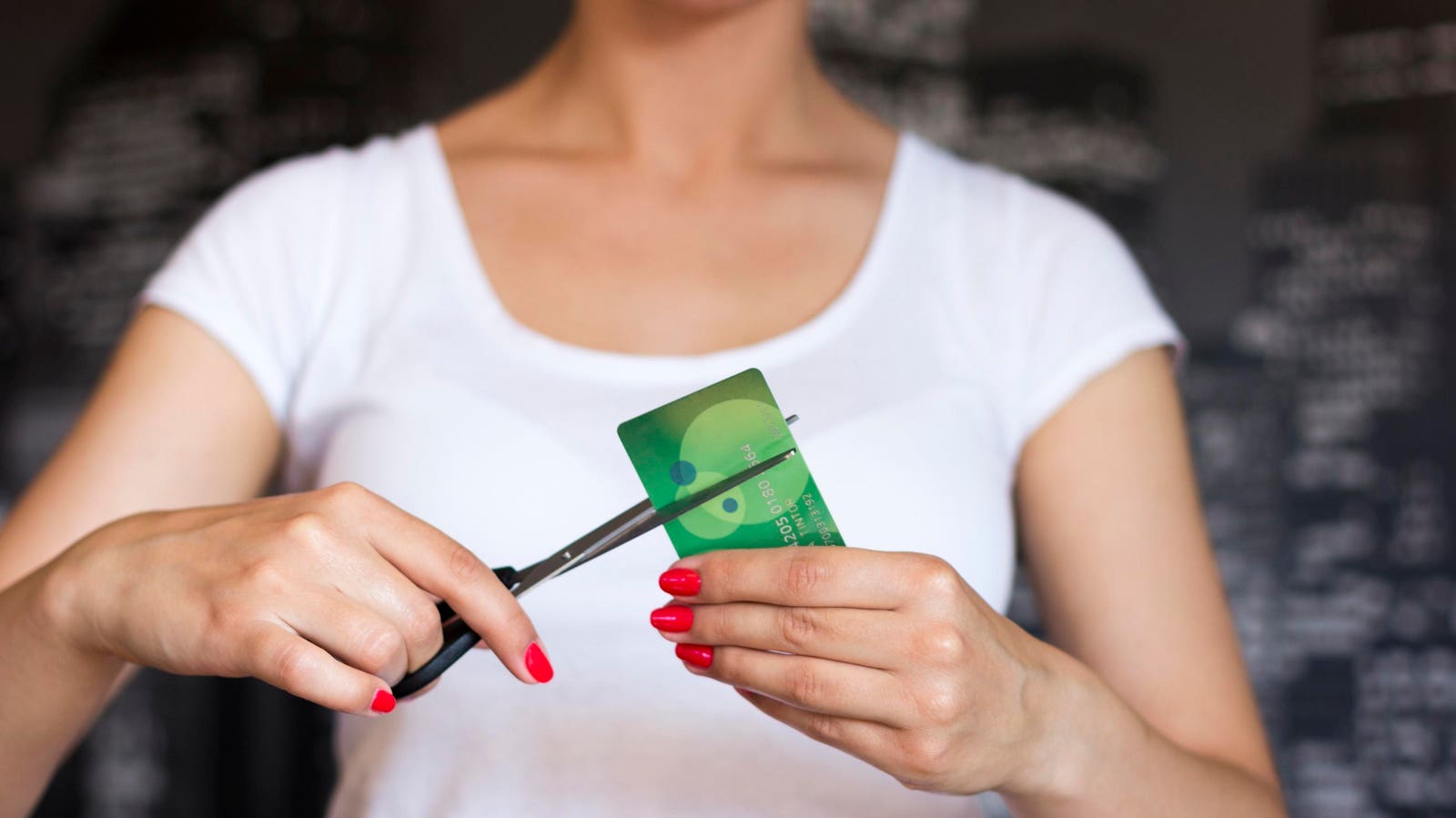Seven years ago, my husband and I had good jobs, a nice home with a backyard, and we did exactly what our parents told us to do financially. But we also had a stressful amount of debt — mortgages, credit card bills and $72,000 of student loans.
We eventually paid off all $300,000 of debt in our 30s, a milestone we looked forward to since we started following the FIRE movement.
ADVERTISEMENT
However, there were challenges we didn’t anticipate once we paid off all our debt. You should know about them if you are working on becoming debt-free in the future.
You May Have Hiccups Traveling Internationally
I gave up using credit cards for several years while I was focused on paying down my student loans. I definitely saw the difference in my spending habits, as I became a lot more intentional and spent significantly less money overall.
When traveling we took out cash as necessary at ATMs, and we could track the cash more closely to stick to our pre-determined budget.
But a few hotels required a credit card for incidentals and we had to negotiate using our debit card. One particular car rental business in Italy required cards to have a credit limit that would cover up to the insurance limit, and our debit card didn’t fit that criterion.
ADVERTISEMENT
Luckily, we called our travel agent to help us sort it out, by showing the car rental company we had enough cash in our checking to cover the limit. The rental company also decided to downgrade our vehicle to a less expensive one (which still ended up being very nice).
Your Credit Score May Have Disappeared Even With An Extensive Credit History
As of 2010, 26 million American consumers — representing about 11% of adults — were credit invisible, according to the Consumer Financial Protection Bureau’s Office of Research.
I fell into this bucket even though I had more than 15 years of credit history, showing more than 20 accounts I had managed over my adult lifetime. Because I had no current open debt accounts, my score was not bad. It was just blank — it showed a dash where a number was supposed to be.
ADVERTISEMENT
An additional 19 million consumers, or 8.3% of the adult population, have credit records that were unscorable by a commercially available credit scoring model. These records were about evenly split between those with insufficient credit history (9.9 million) and those with a lack of recent history (9.6 million).
For a while, I just lived without a credit score, paying for everything in cash and not having many issues because my house was paid off and I wasn’t intending to move.
Then the Covid-19 pandemic came, and I realized I wanted to make some drastic changes including buying a new home and selling the one I paid off.
It’s Harder To Take Out A Loan — Particularly A Mortgage
In 2020, when I was ready to buy my third home, I was surprised I was getting rejected to take out a loan for a mortgage. Oddly, because I had paid off all $300,000 of my debts, including $72,000 of student loans and two mortgages, I wasn’t qualified as a good borrower.
ADVERTISEMENT
According to traditional banks, I wasn’t a good candidate for a loan because I became credit invisible — even though I had close to $1 million in net worth, including owning a paid off home.
When banks looked up my name, I didn’t have a FICO score attached, which was problematic since 90% of the most well-known financial institutions make their lending decisions based on this one measure. It was really frustrating to explain my situation to mortgage lenders who assumed that I had no credit because I had no history.
You May Feel Guilt Spending Money, Even When You Can Finally Afford It
According to a CNBC Financial Confidence Survey, 70% of Americans reported recent stress about their personal finances and 52% said their financial stress has increased since before the pandemic.
My husband and I finished paying off all our debt in 2019, which greatly helped our mental health during the pandemic while many of our peers were concerned about paying their bills.
But even when we reached our FIRE number, I still felt guilty for spending on non-discretionary items like travel, live concerts and clothing — even though they were well within our means, and I had planned for them in advance.
ADVERTISEMENT
I witnessed this with my parents-in-law as well, who recently paid off all their debt including their mortgage. Despite now having saved up enough for retirement with relatively low expenses, and living rather frugally for decades, they are still worried they will run out of money.
While I am, and always will be, a huge proponent of paying down debt for the freedom it creates, I wish I had loosened up my budget a bit more while I was still in the process.
Now that I teach financial education to other adults working on debt freedom, I encourage them to spend at least a portion of their budget toward fun and recreation, versus waiting to become completely debt-free. With this habit, you can learn a healthier balance between saving for the future and spending in the present.
Read the full article here





